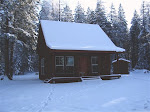Brands: Thor is a giant company that owns most of the brand name trailers. Under Thor is Airstream, Breckenridge, Crossroads, Dutchmen, Keystone, Heartland, and Redwood. Under each of these brands are sub brands. For example, under Dutchmen you have Aerolite, Aspen Trail, Coleman, Denali, Fourwinds,
independently from the others. For example, we visited
Ultralight brands we like and why:
Crossroads/Sunset Trail - Well built. Nice design. Wide stance. Good brand.
Evergreen/Everlite - Nice design. Fiberglass roof (vrs EDPM). More environmentally friendly ingredients. Walkable roof.
Northwoods/Artic Fox - Four season. Strong. Built in
Airstream - Bulletproof design. Holds resale best.
Forest River/Surveyor - Well built. Lots of aluminum. Good QC program observed. Walkable roof.
Construction: generally, the ones with corrugated steel sides are typically wood framed, while the ones with smooth fiberglass siding are framed with aluminum. Aluminum is much lighter, tighter, and holds together down the road better long-term. The wood ones tend to tweak and tork and as a result, their roofs need to be caulked yearly or they leak. If you are looking at
used ones, I'd avoid the wood framed ones.
Framing: The better aluminum ones tend to have more framing in the walls and roof making them stronger. A good example are the Surveyor by

Roofs: A curved roof is usually better than flat for strength and to shed water, most being ma
de with steel trusses. Even better, get one with the EDPM rubber that comes over the edge down the wall a bit, as this would help to prevent leaks in the seam between roof and walls. I would advise that if you can get one advertised with a "walk on roof", do it. Some with flat roofs are walkable, some aren't, and same with arched roofs. An advantage to walkable roofs aside from general strength is if you ever wanted to mount a solar panel, you couldn't get up very easy there to adjust it.
Wheels, axels and brakes:
Make sure you get a spare tire. Most chassis have two 3500# axles. Most have leaf springs but some are putting in torsion arm suspension which is supposed to be a better ride…I dunno. Many brands, such as the Outback and Crossroads are putting the wheels further apart front to back. Supposedly it is to improve towing. All have electric brakes, so your tow vehicle will need a brake controller installed.
Weight: Aluminum is much lighter than wood, so towing is easier and you get better mileage with less weight. Pay attention to the shipping weight of the RV, not load capacity or other weights. Add about 500# for “stuff” to that and you have your towing weight, compared to the capacity of your truck. For example, I have a Tundra Truck with a towing capacity of 6000#. So the heaviest trailer I would consider is around 5000# including the trailer, stuff and a buffer. For example, the Komfort/Dutchmen Pacific Ridge P27RL looks like a really nice RV made by a good company. The ship weight of it is 6700# plus 500#=7200#. That’s pretty heavy requiring one to definitely need a 3/4 ton. Alternately, a Keystone Bullet model 278RLS weighs 4945# plus 500#= 5445#. Look for ultra light models to keep the weight down.
Length: Another thing to consider is size. 30ft is nice and roomy, particularly for a family. But the longer it is, the harder it is to tow with more sway issues. AND, some state, national and forest campgrounds have length limitations of 25 to 30'. Our RV is 26' and we squeak by sometimes.
Slideouts: Travel trailers can have zero, one, two or three slideouts, with travel varying from 18” to 30”. The more and deeper the slideouts, the more expensive the trailer.
Storage: We’ve seen some nice big trailers with ridiculously small outside storage compartments. So small you couldn’t even fit a small grill through the door. While you can pack quite a bit of stuff inside, there are items you’d rather not bring indoors (grills, hoses, firewood, propane, etc). Look for large storage compartments that pass through to the other side, with large doors.
4 vrs 3 season trailers:
Some of the manufacturers advertise 4 season capability. This means you can camp in the freezing termpuratures without fear of freezing and breaking pipes. A good example is Artic Fox, but there are others. They install heating ducts inside the space under the floor and insulate critical parts. Others typically advertise “passive” heating of the under space, meaning the ducts emit some heat while heating the RV.
5th wheels: Nice and roomy, and they don't have the same towability issues of travel trailers. Downsides are that they take up valuable cargo space in the bed of the truck, and they are more difficult to unhitch.
Summary; Honestly, if were just Deb and I, I'd consider something smaller, with a bed big enough for the two of us, a decent kitchen, and a bathroom. We toured the Forest River Surveyor/R-Pod plant in

The R-Pod is really well made and looks pretty cool and retro,
as does the Everlite Element (although very pricy). The Dutchmen Pacific Ridge and Forest River/Surveyor are made in

This comment has been removed by the author.
ReplyDeleterv travel trailers
ReplyDeleteI would love to stop by. But, I think it might have to wait until this summer. I did not know that Serlkay had ever expanded its size. I must say that a succesful family owned business in this day and age is a very refreshing sight! As well as this is a very refreshing site!
ReplyDeletetravel trailers for sale in missouri